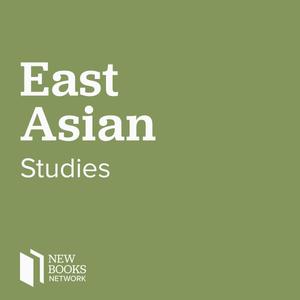
New Books in East Asian Studies
Interviews with Scholars of East Asia about their New Books
- 48 minutes 23 secondsSandy Ng, "Portrayals of Women in Early Twentieth-Century China" (Amsterdam UP, 2024)
The early twentieth century was a particularly tumultuous time in Chinese history, complete with new conflicts, new technologies, and — as Portrayals of Women in Early Twentieth-Century China: Redefining Female Identity through Modern Design and Lifestyle (Amsterdam University Press, 2024) shows — new ways to represent women.
Portrayals of Women in Early Twentieth-Century China by Sandy Ng looks at how women were portrayed in advertisements, photographs, and film in Republican China, all against the backdrop of the rise of print and visual media and debates over the role and image of “modern” women. This book argues that visual portrayals of women not only displayed women, but that such modern images of women allowed women to assert their own individual identities. Filled with images from collections in the UK, Hong Kong, and the United States, this book is sure to interest readers curious about modern Chinese history and the history of design, as well as anyone looking to be inspired by art and material culture.
Interested listeners should also keep an eye out for Sandy's next project: The Dynamics of Modern Asian Design-Material Culture and Social Agency, co-edited with Dr.Megha Rajguru (Bloomsbury Publishing, 2025): “Focusing on the 20th century onwards, this book brings to light the ways in which design as a material form has underscored cultural, social and economic changes across Asia. The Dynamics of Modern Asian Design provides a deeper and more enhanced understanding of material culture in Asia through analysis of examples of ceramics, electronic items, fashion, furniture, interior design, architecture and ornaments from across countries such as China, Hong Kong, India, Japan and South Korea. Authors explore the production of objects as agents in modern material life, moving beyond their roles as commodities and addressing their values in a range of contexts and subjectivities. Early chapters explore how ceramics and found objects are given innovative forms and meanings in their reincarnation, and how the reinvention of material is critical when design is produced and valued. Authors look at the intricate correlation between materials, design practice and social change, highlighting issues of cultural authenticity and tensions between local and global contexts. They then interrogate the significance of visual appearance in material representations of modern women and religious artefacts, exploring gender and religious representation through the analysis of magazines, statues and objects of adornment. The final section includes analysis of concrete, urban design and electrical appliances, specific to particular cultural and social contexts across modern and contemporary Asian cultures.”
Learn more about your ad choices. Visit megaphone.fm/adchoices
Support our show by becoming a premium member! https://newbooksnetwork.supportingcast.fm/east-asian-studies
10 January 2025, 9:00 am - 40 minutes 8 secondsProfessional Chat – Working with the most marginalised people in Taiwan, AIDS/HIV and undocumented migrants, with Yi-Fan Feng
In this episode, our host Lara Momesso interviews Yi-Fan Feng (馮一凡), the Deputy Chief Executive at Harmony Home Taiwan, to discuss the work that Harmony Home has done with some of the most marginalised people in Taiwan: people living with HIV/AIDS and undocumented residents and their children. In this chat, Lara and Yi-Fan explore how more than 40 years of activities by Harmony Home have contributed not only to help people living with HIV/AIDS and undocumented residents but also to change the way the Taiwanese government and society approached these groups.
If you want to know more about Harmony Home, what they do and how to support it, follow this link: www.twhhf.org
If you want to watch the documentary movie mentioned in the interview, Mimi’s Utopia, follow this link: www.youtube.com/watch?v=qjVfVEl58WU
Learn more about your ad choices. Visit megaphone.fm/adchoices
Support our show by becoming a premium member! https://newbooksnetwork.supportingcast.fm/east-asian-studies
10 January 2025, 9:00 am - 1 hour 16 minutesSixiang Wang, "Boundless Winds of Empire: Rhetoric and Ritual in Early Chosŏn Diplomacy with Ming China" (Columbia UP, 2023)
The Chosŏn dynasty of Korea enjoyed generally peaceful and stable relations with Ming China, a relationship that was carefully cultivated and achieved only through the strategic deployment of cultural practices, values, and narratives by Chosŏn political actors. Boundless Winds of Empire: Rhetoric and Ritual in Early Chosŏn Diplomacy with Ming China (Columbia UP 2023) explores this history, rethinking how we understand Sino-Korean relations.
Boundless Winds of Empire is detailed, rich, and filled with a fascinating range of sources, including poetry, travelogues, epistolary writings, and literary anthologies. Sixiang Wang deftly weaves together these sources, highlighting the key role envoys played in shaping diplomatic strategy, the agency of Chosŏn officials, and the contested nature of the Ming empire.
The 2024 winner of the UC Berkeley Hong Yung Lee Book Award in Korean Studies, this book should appeal to those interested in Chinese and Korean studies, international relations, premodern history, and anyone who has ever struggled to understand political rhetoric (this book will show you what can be done if you take it seriously).
Learn more about your ad choices. Visit megaphone.fm/adchoices
Support our show by becoming a premium member! https://newbooksnetwork.supportingcast.fm/east-asian-studies
9 January 2025, 9:00 am - 52 minutes 6 secondsPeter Hessler, "Other Rivers: A Chinese Education" (Penguin, 2024)
In 2019, journalist and writer Peter Hessler traveled with his family to China. He’d gotten a gig as a teacher of writing—nonfiction writing in particular—in what he’d hoped would be a sequel to his 2001 book River Town: Two Years on the Yangtze.
But plans changed—radically. At the very end of 2019, the COVID-19 virus emerges in Wuhan, leading to chaos as officials frantically try to figure out how to control the new disease. Peter’s reporting first wins his criticism from Chinese nationalists angry about his frank discussions of China’s mistakes—then criticism from U.S. hawks angry that Hessler gives Beijing credit for what it managed to do right as COVID rapidly spreads around the world.
Peter’s years in China are covered in his latest book Other Rivers: A Chinese Education (Penguin Press, 2024), published last year.
Peter Hessler is a staff writer at the New Yorker, where he served as Beijing correspondent from 2000 to 2007, Cairo correspondent from 2011 to 2016, and Chengdu correspondent from 2019 to 2021. He is the author of The Buried: An Archaeology of the Egyptian Revolution; River Town: Two Years on the Yangtze, which won the Kiriyama Book Prize; Oracle Bones: A Journey Between China's Past and Present, which was a finalist for the National Book Award; Country Driving: A Chinese Road Trip; and Strange Stones: Dispatches from East and West. He won the 2008 National Magazine Award for excellence in reporting, and he was named a MacArthur fellow in 2011.
You can find more reviews, excerpts, interviews, and essays at The Asian Review of Books, including its review of Other Rivers. Follow on Twitter at @BookReviewsAsia.
Nicholas Gordon is an editor for a global magazine, and a reviewer for the Asian Review of Books. He can be found on Twitter at @nickrigordon.
Learn more about your ad choices. Visit megaphone.fm/adchoices
Support our show by becoming a premium member! https://newbooksnetwork.supportingcast.fm/east-asian-studies
9 January 2025, 9:00 am - 1 hour 3 minutesAurelia Campbell, "What the Emperor Built: Architecture and Empire in the Early Ming" (U Washington Press, 2020)
One of the most famous rulers in Chinese history, the Yongle emperor (r. 1402–24) gained renown for constructing Beijing’s magnificent Forbidden City, directing ambitious naval expeditions, and creating the world’s largest encyclopedia. What the Emperor Built: Architecture and Empire in the Early Ming (U Washington Press, 2020) is the first book-length study devoted to the architectural projects of a single Chinese emperor.
Focusing on the imperial palaces in Beijing, a Daoist architectural complex on Mount Wudang, and a Buddhist temple on the Sino-Tibetan frontier, Aurelia Campbell demonstrates how the siting, design, and use of Yongle’s palaces and temples helped cement his authority and legitimize his usurpation of power. Campbell offers insight into Yongle’s sense of empire—from the far-flung locations in which he built, to the distant regions from which he extracted construction materials, and to the use of tens of thousands of craftsmen and other laborers. Through his constructions, Yongle connected himself to the divine, interacted with his subjects, and extended imperial influence across space and time.
Spanning issues of architectural design and construction technologies, this deft analysis reveals remarkable advancements in timber-frame construction and implements an art-historical approach to examine patronage, audience, and reception, situating the buildings within their larger historical and religious contexts.
Noelle Giuffrida is a professor and curator of Asian art at the School of Art and the David Owsley Museum of Art at Ball State University. Email: [email protected].
Learn more about your ad choices. Visit megaphone.fm/adchoices
Support our show by becoming a premium member! https://newbooksnetwork.supportingcast.fm/east-asian-studies
6 January 2025, 9:00 am - 1 hour 27 minutesAustin Dean, "China and the End of Global Silver, 1873–1937" (Cornell UP, 2020)
In the late nineteenth century, as much of the world adopted some variant of the gold standard, China remained the most populous country still using silver. Yet China had no unified national currency; there was not one monetary standard but many. Silver coins circulated alongside chunks of silver and every transaction became an "encounter of wits." China and the End of Global Silver, 1873–1937 (Cornell UP, 2020) focuses on how officials, policy makers, bankers, merchants, academics, and journalists in China and around the world answered a simple question: how should China change its monetary system? Far from a narrow, technical issue, Chinese monetary reform is a dramatic story full of political revolutions, economic depressions, chance, and contingency. As different governments in China attempted to create a unified monetary standard in the late nineteenth and early twentieth century, the United States, England, and Japan tried to shape the direction of Chinese monetary reform for their own benefit.
Austin Dean argues convincingly that the Silver Era in world history ended owing to the interaction of imperial competition in East Asia and the state-building projects of different governments in China. When the Nationalist government of China went off the silver standard in 1935, it marked a key moment not just in Chinese history but in world history.
Austin Dean is Assistant Professor of History at the University of Nevada, Las Vegas. His work has appeared in Modern China and the Journal of American-East Asian Relations. He is on twitter @thelicentiate.
Ghassan Moazzin is an Assistant Professor at the Hong Kong Institute for the Humanities and Social Sciences and the Department of History at the University of Hong Kong. He works on the economic and business history of 19th and 20th century China, with a particular focus on the history of foreign banking, international finance and electricity in modern China. His first book, tentatively titled Foreign Banks and Global Finance in Modern China: Banking on the Chinese Frontier, 1870–1919, is forthcoming with Cambridge University Press.
Learn more about your ad choices. Visit megaphone.fm/adchoices
Support our show by becoming a premium member! https://newbooksnetwork.supportingcast.fm/east-asian-studies
5 January 2025, 9:00 am - 1 hour 26 minutesJie Li, "Utopian Ruins: A Memorial Museum of the Mao Era" (Duke UP, 2020)
In Utopian Ruins: A Memorial Museum of the Mao Era (Duke University Press, 2020) Jie Li traces the creation, preservation, and elision of memories about China's Mao era by envisioning a virtual museum that reckons with both its utopian yearnings and its cataclysmic reverberations.
Li proposes a critical framework for understanding the documentation and transmission of the socialist past that mediates between nostalgia and trauma, anticipation and retrospection, propaganda and testimony. Assembling each chapter like a memorial exhibit, Li explores how corporeal traces, archival documents, camera images, and material relics serve as commemorative media. Prison writings and police files reveal the infrastructure of state surveillance and testify to revolutionary ideals and violence, victimhood and complicity.
Photojournalism from the Great Leap Forward and documentaries from the Cultural Revolution promoted faith in communist miracles while excluding darker realities, whereas Mao memorabilia collections, factory ruins, and memorials at trauma sites remind audiences of the Chinese Revolution's unrealized dreams and staggering losses.
Suvi Rautio is a part-time Course Lecturer at the Social & Cultural Anthropology discipline at University of Helsinki.
Learn more about your ad choices. Visit megaphone.fm/adchoices
Support our show by becoming a premium member! https://newbooksnetwork.supportingcast.fm/east-asian-studies
4 January 2025, 9:00 am - 1 hour 27 minutesMarc Gallicchio, "Unconditional: The Japanese Surrender in World War II" (Oxford UP, 2020)
Signed on September 2, 1945 aboard the American battleship USS Missouri in Tokyo Bay by Japanese and Allied leaders, the instrument of surrender formally ended the war in the Pacific and brought to a close one of the most cataclysmic engagements in history, one that had cost the lives of millions. VJ―Victory over Japan―Day had taken place two weeks or so earlier, in the wake of the dropping of the atomic bombs on Hiroshima and Nagasaki and the entrance of the Soviet Union into the war. In the end, the surrender itself fulfilled the commitment that Franklin Roosevelt had made that it be "unconditional," as had been the case with Nazi Germany in May, 1945.
Though readily accepted as war policy at the time, after Roosevelt's death in April 1945, popular support for unconditional surrender wavered, particularly when the bloody campaigns on Iwo Jima and Okinawa made clear the cost of military victory against Japan. The ending of the war in Europe spurred calls in Congress, particularly among anti-New Deal Republicans, to shift the American economy to peacetime and bring home troops. Even after the atomic bombs had been dropped, Japan continued to seek a negotiated surrender, further complicating the debate. Though this was the last time Americans would impose surrender unconditionally, questions surrounding it continued at home through the 1950s and 1960s, when liberal and conservative views reversed, and particularly in Vietnam and the definition of "peace with honor." It remained controversial through the ceremonies surrounding the 50th anniversary and the Gulf War, when the subject revived.
In Unconditional: The Japanese Surrender in World War II (Oxford UP, 2020), which publishes in time for the 75th anniversary of the surrender, Bancroft Prize co-winner Marc Gallicchio offers a narrative of the surrender in its historical moment, revealing how and why the event unfolded as it did and the principle figures behind it, including George C. Marshall and Douglas MacArthur, who would effectively become the leader of Japan during the American occupation. It also reveals how the policy underlying it remained controversial at the time and in the decades following, shaping our understanding of World War II.
Grant Golub is a PhD candidate in the Department of International History at the London School of Economics and Political Science. His research focuses on the politics of American grand strategy during World War II.
Learn more about your ad choices. Visit megaphone.fm/adchoices
Support our show by becoming a premium member! https://newbooksnetwork.supportingcast.fm/east-asian-studies
4 January 2025, 9:00 am - 45 minutes 23 secondsVictor D. Cha, "The Black Box: Demystifying the Study of Korean Unification and North Korea" (Columbia UP, 2024)
North Korea is, to this day, still one of the world’s most mysterious countries. What little we know about daily life in the country comes from defectors or foreigners who’ve spent time there–some of whom have been on this show. But both camps present narrow, if not slanted, views of what life is like in the country.
Korea expert Victor Cha, along with several other researchers, have put together a collection that tries to tackle the topic of North Korea with a more rigorous approach, in The Black Box: Demystifying the Study of Korean Unification and North Korea (Columbia University Press: 2024)
What do we know about North Korea’s cyberwarfare capability? Do U.S.-South Korea military exercises really cause North Korean belligerence? What do ordinary North Koreans believe? And what do U.S. and South Korean experts think are their “known unknowns” when it comes to North Korea?
Victor D. Cha is Distinguished University Professor, D.S. Song-KF Endowed Chair, and professor of government in the Walsh School of Foreign Service and the Department of Government at Georgetown University. He serves in senior advisory positions for the Center for Strategic and International Studies, the Department of Defense Policy Board, and the National Endowment for Democracy. Cha previously served on the National Security Council as director for Asian affairs.
You can find more reviews, excerpts, interviews, and essays at The Asian Review of Books, including its review of The Black Box. Follow on Twitter at @BookReviewsAsia.
Nicholas Gordon is an editor for a global magazine, and a reviewer for the Asian Review of Books. He can be found on Twitter at @nickrigordon.
Learn more about your ad choices. Visit megaphone.fm/adchoices
Support our show by becoming a premium member! https://newbooksnetwork.supportingcast.fm/east-asian-studies
2 January 2025, 9:00 am - 1 hour 11 minutesTaomo Zhou, “Migration in the Time of Revolution: China, Indonesia and the Cold War” (Cornell UP, 2019)
If tales of China’s radical ‘opening up’ to the world over the last 30 years imply that the country was somehow ‘closed’ before this, then one need only think of Beijing’s dalliances with various potential socialist allies during the Cold War to dispel this impression. There is, moreover, another equally important case in which people linked to ‘China’ were involved in transnational affairs at this time – namely that of overseas Chinese populations throughout the world. And, as Taomo Zhou’s fascinating Indonesia-centred account shows, in Southeast Asia the Chinese outside China were intimately entangled in a vast among of what was going on at this time on the diplomatic and political level.
Drawing on a trove of archival and fieldwork-derived material from multiple locations, Zhou’s Migration in the Time of Revolution: China, Indonesia and the Cold War (Cornell University Press, 2019) presents a rich account of the Indonesian-Chinese population’s involvement in regional and global affairs, mainly between the 1940s and the 1960s but also either side of this tumultuous window of time. As entertaining as it is rich in new insights, the book nimbly moves between China and different parts of Indonesia’s vast archipelago, in doing so painting a picture of the limitless diversity to migrant and diasporic experience and, in the process, helping us see apparently monolithic events like the Cold War in very human terms.
Ed Pulford is a postdoctoral researcher at the University of Amsterdam. His research focuses on friendships and histories between the Chinese, Korean and Russian worlds, and northeast Asian indigenous groups.
Learn more about your ad choices. Visit megaphone.fm/adchoices
Support our show by becoming a premium member! https://newbooksnetwork.supportingcast.fm/east-asian-studies
1 January 2025, 9:00 am - 39 minutes 31 secondsLanguage Rights in a Changing China
In this episode of the Language on the Move Podcast, Brynn Quick speaks with Dr. Alexandra Grey about Dr. Grey’s book entitled Language Rights in a Changing China: A National Overview and Zhuang Case Study (De Gruyter, 2021).
China has had constitutional minority language rights for decades, but what do they mean today? Answering with nuance and empirical detail, this book examines the rights through a sociolinguistic study of Zhuang, the language of China’s largest minority group. The analysis traces language policy from the Constitution to local government practices, investigating how Zhuang language rights are experienced as opening or restricting socioeconomic opportunity. The study finds that language rights do not challenge ascendant marketised and mobility-focused language ideologies which ascribe low value to Zhuang. However, people still value a Zhuang identity validated by government policy and practice.
Rooted in a Bourdieusian approach to language, power and legal discourse, this is the first major publication to integrate contemporary debates in linguistics about mobility, capitalism and globalization into a study of China’s language policy.
This book came out in May 2021 after almost a decade of Alex’s doctoral and postdoctoral work. Her doctoral dissertation was recognised as the best dissertation on the sociology of language, internationally, through the 2018 Joshua A. Fishman Award.
For additional resources, show notes, and transcripts, go here.
Learn more about your ad choices. Visit megaphone.fm/adchoices
Support our show by becoming a premium member! https://newbooksnetwork.supportingcast.fm/east-asian-studies
31 December 2024, 9:00 am - More Episodes? Get the App
Your feedback is valuable to us. Should you encounter any bugs, glitches, lack of functionality or other problems, please email us on [email protected] or join Moon.FM Telegram Group where you can talk directly to the dev team who are happy to answer any queries.
 Sinica Podcast
Sinica Podcast
 The Little Red Podcast
The Little Red Podcast
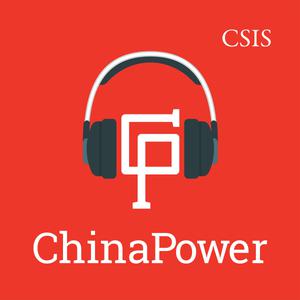 ChinaPower
ChinaPower
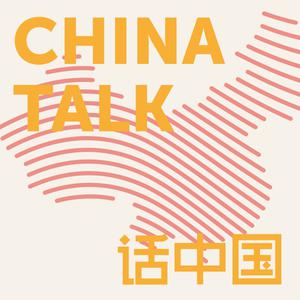 ChinaTalk
ChinaTalk
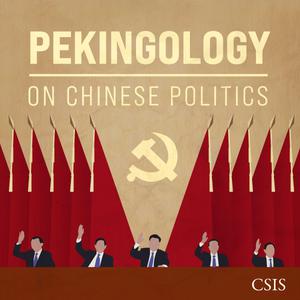 Pekingology
Pekingology
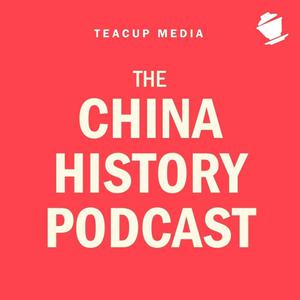 The China History Podcast
The China History Podcast